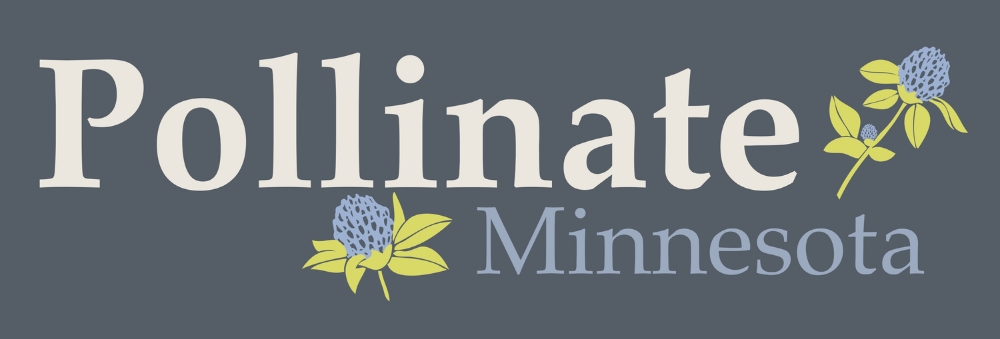At the end of 2019, in planning our year end giving campaign, we decided to make 2020, Pollinate MN’s 5th anniversary, a year of fundraising for our organization. With the global pandemic and the murder of George Floyd, we made the executive decision to put that effort on hold.
Pollinate Minnesota is led by a white, cisgender woman, and while we see our work as a tool, we wanted to step back this year. We had to step back: it’s difficult to support 10-year-olds (or adults) in working a hive of honey bees for the first time from 6 feet away, and we wanted to ensure any online resources we offer would be relevant and needed by teachers and students.
We’ve designed our work- 1) building student critical thinking and bravery through hands-on science education and 2) food systems policy reform through pollinator advocacy- to align with broader food justice and antiracist movements. We continue to put our intention toward our work as justice work.
We know pesticide exposures drive pollinator decline, and that the way we register, regulate and use pesticides in this country is another system that is functioning exactly as designed, compromising human and ecosystem health for corporate profit. It’s not an exact comparison, but the global pesticide industry revenue from neonicotinoid insecticide sales in 2018 was $4.42 billion. Median US farmer income that same year was -$1500.
Pollinate Minnesota has expertise and knowledge of the role of pesticides in our food and farming system and their impact on pollinators and ecosystems. We have experience working in community to reform this system. We're expert pollinator communicators and teachers.
This fall, the National Farm to School Network announced the call to action: “By 2025, 100% of communities will hold power in a racially just food system." This bold call is an inspiration, and a necessity. We are committing our work and expertise, in community, to ongoing efforts, at the state, local and national level to redistribute power to all players in the food system.
We also pledge to articulate both why we're joining this call and the essential link between this work and pollinator health more fully to all our audiences.
In practice in 2021 that means creating Virtual Reality versions of our bravery-building classes, with support from the Hennepin County Green Partners Program, to connect with students around the country. It means imbedding antiracist teaching tools into all our programming with classrooms and sharing resources with teachers. It means continuing to keep honey bees, as the teaching tools they are, with community partners like Sun Ray Library, Minneapolis Public Schools, Midwest Special Services, and Success Academy, and developing distanced experiences with these audiences.
It means continued work organizing, in community, for Minnesota's leadership in the not only the amount of pollinator-friendly policies authored and passed, at both the state and local level, but for those policies to be realized on the ground with improvements in the health of our ecosystems, a redistribution of power in our food system and revitalized insect populations.
It means hiring a BIPOC evaluator this year to hold us accountable to these efforts.
We’ve long recognized the bravery-building role our classes with live bees hold for students. All of us need bravery reserves now, and white people, build your bravery and skill to join efforts toward an antiracist tomorrow.
As you’ve likely discovered, you can now use GiveMN search tools to direct your dollars toward orgs that are led by and serve BIPOC communities. You can also support orgs significantly impacted by the pandemic. Please support these organizations.
There are so many favorites:
Please also consider supporting our pollinator allies:
University of MN Bee Lab Projects: for Rusty Patched Bumblebee Habitat and Beekeeper Programming for currently Incarcerated folks.
And these National groups:
Our hearts have been and continue to be with you all. Sending appreciation, hope and resilience,
Erin Rupp
Founder and ED, Pollinate MN
originally posted for Give to the Max Day 2020.
